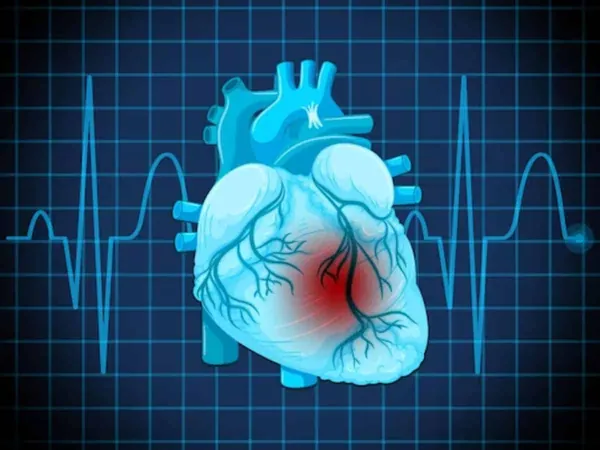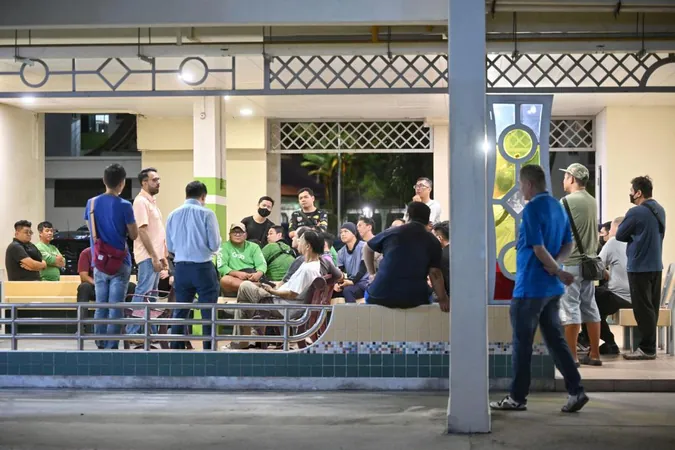
Breakthrough Study Reveals Heart Muscle Regeneration Could be Possible for Some with Artificial Hearts!
2024-12-22
Author: Wei
Groundbreaking Discovery in Heart Muscle Regeneration
In a groundbreaking discovery, researchers have revealed that heart muscle regeneration is possible in a select group of patients equipped with artificial hearts. This research, spearheaded by a prominent physician-scientist from the University of Arizona College of Medicine—Tucson's Sarver Heart Center—marks a significant advancement in our understanding of cardiac health and healing.
Understanding Heart Failure and Current Treatments
Heart failure, a condition that affects millions worldwide, has long been viewed as incurable. Current medical interventions primarily focus on managing the disease through medications that slow its progression. For patients experiencing advanced heart failure who are not candidates for heart transplants, artificial hearts known as left ventricular assist devices (LVADs) are often employed to aid in blood circulation.
Insights from Dr. Hesham Sadek
Dr. Hesham Sadek, the chief of the Division of Cardiology at the University of Arizona, noted the distinction between different muscle types in the body. "Skeletal muscle has a remarkable ability to regenerate after an injury. When you pull a muscle playing sports, it can heal. On the contrary, heart muscle typically does not have this regenerative capacity," he elaborated in findings recently published in the journal *Circulation*.
Research Collaboration and Findings
To investigate the regeneration of heart muscles, Sadek collaborated with international experts and began by analyzing heart tissue from patients using artificial hearts, thanks to contributions from the University of Utah Health team led by the visionary Stavros Drakos, a forerunner in the study of LVAD-assisted recovery.
The startling results revealed that patients with artificial hearts generated cardiac muscle cells at more than six times the rate of those with healthy hearts. "This is the most compelling evidence to date that human heart muscle cells possess the capability to regenerate," exclaimed Sadek. This revelation not only enhances the belief in the heart's intrinsic regenerative power but also highlights a potential pathway for treatment options in the future.
Implications for Future Research and Treatment
The findings further lend credence to the hypothesis that the limitation of the heart's regenerative ability is associated with its constant workload after birth. The study suggests that targeting specific molecular pathways linked to cell division might provide avenues for enhancing the heart's regenerative processes.
As research unfolds, this breakthrough could pave the way for innovative therapeutic strategies that offer hope to the countless individuals battling heart failure. Stay tuned, as the medical community eagerly anticipates what this means for future treatments and the possible regeneration of human heart tissue!



 Brasil (PT)
Brasil (PT)
 Canada (EN)
Canada (EN)
 Chile (ES)
Chile (ES)
 Česko (CS)
Česko (CS)
 대한민국 (KO)
대한민국 (KO)
 España (ES)
España (ES)
 France (FR)
France (FR)
 Hong Kong (EN)
Hong Kong (EN)
 Italia (IT)
Italia (IT)
 日本 (JA)
日本 (JA)
 Magyarország (HU)
Magyarország (HU)
 Norge (NO)
Norge (NO)
 Polska (PL)
Polska (PL)
 Schweiz (DE)
Schweiz (DE)
 Singapore (EN)
Singapore (EN)
 Sverige (SV)
Sverige (SV)
 Suomi (FI)
Suomi (FI)
 Türkiye (TR)
Türkiye (TR)
 الإمارات العربية المتحدة (AR)
الإمارات العربية المتحدة (AR)